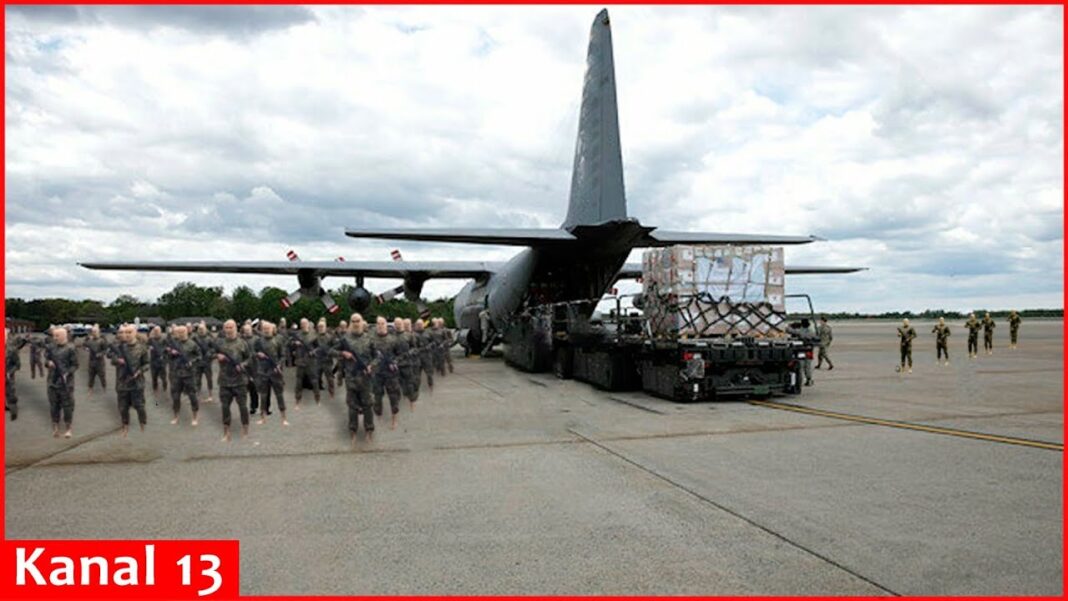|
Getting your Trinity Audio player ready...
|
The Cash Smuggling Route: How Iran Sends Suitcases of Money to Hezbollah — and the Shiite Organization That Covers for Them
Edited by: Fern Sidman
The United States is intensifying its efforts to dismantle Hezbollah’s financial lifelines, recently offering a $10 million reward for information leading to the exposure of the militant group’s clandestine money-smuggling operations. A new report out of Israel, published by N12 and based on the research of intelligence analyst Ronen Solomon, has shed light on a remarkably intricate network — one that has operated under the radar and in defiance of international sanctions for years.
At the center of this evolving investigation is a Lebanese courier, arrested on February 28 at Beirut’s Rafic Hariri International Airport. In his possession was a seemingly innocuous suitcase — until security discovered it contained $2.5 million in cash. But according to Solomon’s findings, this arrest was not an isolated incident, but rather a glimpse into a far larger, more sophisticated apparatus designed to funnel Iranian money to Hezbollah’s Unit 4400 — the arm of the group tasked with its military buildup, as was explained in the N12 report.
Contrary to earlier assumptions that Iranian state flights were being used to transport suitcases full of cash directly into Lebanon, the current investigation suggests that Hezbollah and its Iranian backers have adopted a more elusive and complex smuggling strategy.
“This method relies on connecting flights through Istanbul and other third-party countries to obscure the Iranian origin,” Solomon told N12. The cash transfers are conducted in the gray zones of international transit — duty-free areas within airports — where official customs controls do not apply. There, couriers execute handoffs in secluded airport restrooms and lounges, switching bags away from the eyes of customs officials.
The genius of the method lies in its legal ambiguity. Because the transactions happen within airport transit zones, the couriers do not technically cross national borders during the exchange. This makes conventional tracking mechanisms, such as customs inspections, passport controls, or flight manifests, ineffective.
But the logistical brilliance of the operation does not end at the airport.
The N12 report detailed how Hezbollah’s financial and military operations are supported by a sophisticated infrastructure that includes subterranean facilities. One such location — perhaps the most audacious — lies beneath a hospital in Beirut, which reportedly houses a fortified command center. This center serves as a hub for secure communications, operational coordination, and financial transfers. Its placement beneath a medical facility is likely a deliberate attempt to deter airstrikes and surveillance by exploiting the protective status of civilian infrastructure.
Integral to this system is the Supreme Shiite Council of Lebanon, a religious body that outwardly functions as a legitimate institution representing Lebanon’s Shiite community. However, the report at N12 said that according to Solomon’s investigation, the council has been quietly co-opted as a front organization, enabling Hezbollah’s activities under the guise of religious and charitable work.
Through the council, Hezbollah allegedly grants diplomatic protections to couriers, labels financial transfers as religious donations, and shields its operations behind legal and religious exemptions. This allows them to move cash, personnel, and materials with minimal interference, even under the watch of international intelligence agencies.
The use of religious institutions as protective covers is not new, but as pointed out in the N12 report, it has become a particularly effective tactic in Hezbollah’s playbook. By disguising critical logistical operations as charitable or religious work, the organization has been able to sidestep sanctions, inspections, and even legal enforcement in multiple jurisdictions.
Despite aggressive international efforts to clamp down on Hezbollah’s financial ecosystem, the group’s evolving tactics — involving airports, proxy institutions, and diplomatic camouflage — demonstrate a remarkable degree of adaptability and operational discipline.
The recent arrest at Beirut’s airport has cracked open a glimpse into this shadow network, but experts caution that dismantling it will require a sustained, multinational intelligence and enforcement effort.
For the United States, the newly announced $10 million reward is both a signal of urgency and an invitation to whistleblowers, insiders, or defectors who may hold the keys to unraveling the full scope of Hezbollah’s funding pipeline, the N12 report indicated. But with each layer of this network revealed — from airport duty-free zones to bunkers beneath hospitals — the task ahead is as complex as it is critical.
As Ronen Solomon’s investigation has made clear, Hezbollah is not simply an armed militia but a state-like actor with global logistics, financial engineering, and a willingness to use civilian cover to pursue its strategic goals. The challenge facing the international community is whether it can keep up with — or finally disrupt — a system designed to stay hidden in plain sight.






NETANYAHU UNCENSORED IN HIS OWN WORDS:
IU EXCLUSIVE INTERVIEW: NETANYAHU TELLS THE FULL STORY OF THE WAR
https://youtu.be/31bG_tEtRPE?feature=shared
IU EXCLUSIVE INTERVIEW: NETANYAHU TELLS THE FULL STORY OF THE WAR
If you get the chance to watch Netanyahu‘s WONDERFUL UNCENSORED video interview, he makes it clear that (EVIL PIECES OF SHIT) BIDEN and BLINKEN DIRECTLY THREATENED to CUT OFF military aid and supplies to ISRAEL!! Their demands were “DON’T”!!!! Any JEW who EVER supports ANY Nazi Democrats should ROT in hell!!